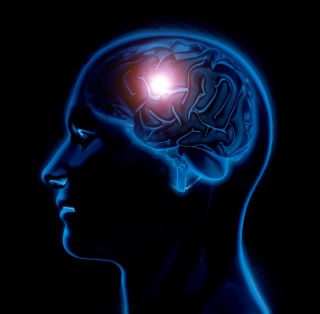Menopause
It’s Not Alzheimer’s Disease, It’s Perimenopause
Brain fog due to menopause is more common than many people think.
Updated July 5, 2023 Reviewed by Davia Sills
Key points
- Approximately 60 percent of women experience cognitive impairments due to menopause.
- Perimenopause-related brain fog may look like the early onset of Alzheimer’s disease but is distinct.
- Hormone therapy is geared towards helping with hot flashes, not menopause-related brain fog.
- Women need more options beyond the current recommendation of following a healthy lifestyle.

Brain fog strikes!
In my late 40s (I’m currently 51), I began to notice a disturbing change in my verbal and working memory. I started having difficulty coming up with words while talking and remembering why I had just walked into a room. This change was doubly disturbing. First, as an academic and researcher, a key requirement of my job is to effectively and smoothly communicate. Suddenly, my workload tripled as I had to walk through each lecture two or three times before each class to make sure that I wouldn’t blank out on critical wording while teaching.
When you teach four to five lectures a week, all that prep work becomes exhausting and consuming. Work meetings that I would typically find interesting became stressful as I worried about embarrassing myself by not being able to articulate my thoughts well and having long pauses while I tried to come up with the words. And as someone who studies cognitive aging and dementia, there was the ever-present cold fear of whether these cognitive decrements were early signs of Alzheimer’s disease.
It's not Alzheimer’s; it’s perimenopause.
Because I didn’t have hot flashes, I belatedly and embarrassingly realized that I was in the throes of perimenopause, the transition period before menopause. This late realization was despite my wonderful OB-GYN asking about menopausal symptoms during every visit over the last several years. Somehow, it just didn’t register.
Unfortunately, my experience is common—about 60 percent of women experience cognitive changes during perimenopause, yet many women are unaware of perimenopausal symptoms beyond hot flashes. Cognitive changes during menopause typically relate to verbal learning and memory (e.g., difficulty recalling words), working memory (forgetting why you entered a room), and difficulty concentrating. Fortunately, executive function, which allows us to do complex cognitive tasks, tends to be spared.
While women’s self-reported cognitive complaints are confirmed by decreased performance on verbal learning and memory tests, performance typically is still within the normal range. While these symptoms also occur in Alzheimer’s disease, the International Menopause Society points out that getting Alzheimer’s disease before age 65 is rare; menopause commonly occurs in the late 40s and early 50s, and the cognitive symptoms often eventually abate.
What can be done to treat menopause-related brain fog?
Apparently, not much. The current guidance from the International Menopause Society is that menopausal hormone therapy shouldn’t be used to specifically address brain fog, and instead, women should try lifestyle changes that can lower dementia risk, such as exercising regularly and eating a healthy diet. Additionally, while it’s great that menopause-friendly workplaces are becoming more common, they tend to focus almost exclusively on how to accommodate hot flashes. Wouldn’t it be great to include brain fog accommodation?
I reached out to Dr. Jennifer Zeidberg, M.D., FACOG, to see what she recommends to her perimenopausal patients. “Brain fog” is a common complaint and is very subjective. Some feel forgetful, un-focused, and/or fatigued. Often a chief complaint of “fogginess” provokes an office visit and we docs owe it to our patients to outline the medical indications for HRT/ERT and include risks and benefits. My first question for those without vasomotor symptoms is regarding sleep. Sleep changes during peri/menopause and much of our mood changes can be associated with that. Many patients will have stabilization and/or significant improvement in the mood when HRT/ERT is implemented and often helps their sleep cycles. Women who sleep better, have improved overall health and are able to exercise and engage more with friends and family. So while HRT/ERT may not be medically recommended specifically for “brain fog”, I’ve definitely seen my patients benefit from it immensely.”
My personal solution:
I’m already boringly healthy and regularly sleep eight to nine hours a night, so my solution has come from an unexpected quarter. Currently, I’m participating in a study looking at longitudinal patterns in basic brain health as measured by a simple, dynamic eye movement test. I do a five-minute eye movement test several times a week. Once the test is completed, a brain health score is automatically computed and pops up on the screen.
For the first few weeks, my brain health score was pretty bad. But then something happened. Not only did my score start to improve gradually, but doing that eye movement test appeared to reactivate underutilized brain circuitry. Like the Tin Man in Dorothy and the Wizard of Oz, some of my brain circuits had grown rusty from underuse, and this eye movement test seemed to act like a lubricant. With the reactivation of the brain circuitry, my tip-of-the-tongue experiences started to become less frequent. I asked neuroscientist and lead researcher on the study, Dr. Dorion Liston, if this experience made any sense or if it was just wishful thinking.

Dr. Liston noted, "One of the all-time great understatements might be that brain processes are not fully understood.” He then described a few possible explanations for my experience. “One possibility is that biofeedback from our neuro biomarker is inducing adaptive behavioral changes apart from the task on a very slow timescale. Another possibility might be that the repeated eye movement behavior has some benefit, similar to EMDR. Yet a third possibility is that the task itself provides a small moment of Zen and that the development of a daily practice may strengthen beneficial circuits. Any or all of these are possible, but these are just ideas, not based on any of our current evidence.”
Summary
Menopause-related brain fog can be scary, frustrating, and embarrassing. Sadly, many women are unaware that this is a common symptom of menopause. Talking with your OB-GYN early and often about menopausal symptoms can help alleviate fears of early Alzheimer’s disease. Unfortunately, other than trying healthy lifestyle behaviors, treatment is very limited. The good news is that the brain fog can eventually go away.
References
Gava, G., Orsili, I., Alvisi, S., Mancini, I., Seracchioli, R., & Meriggiola, M. (2019). Cognition, mood, and sleep in menopausal transition: The role of menopause hormone therapy. Medicina, 55: 668.
Harper JC, Phillips S, Biswakarma R, Yasmin E, Saridogan E, Radhakrishnan S, C Davies M, Talaulikar V. (2022). An online survey of perimenopausal women to determine their attitudes and knowledge of the menopause. Womens Health (Lond). 18:17455057221106890.
Maki, P. & Jaff, N. (2022). Brain fog in menopause: a health-care professional’s guide for decision making and counseling on cognition, Climacteric, 25:6, 570-578.
Sliwinski JR, Johnson AK, Elkins GR. (2014). Memory Decline in Peri- and Post-menopausal Women: The Potential of Mind-Body Medicine to Improve Cognitive Performance. Integrated Medicine Insights. 9:17-23.




